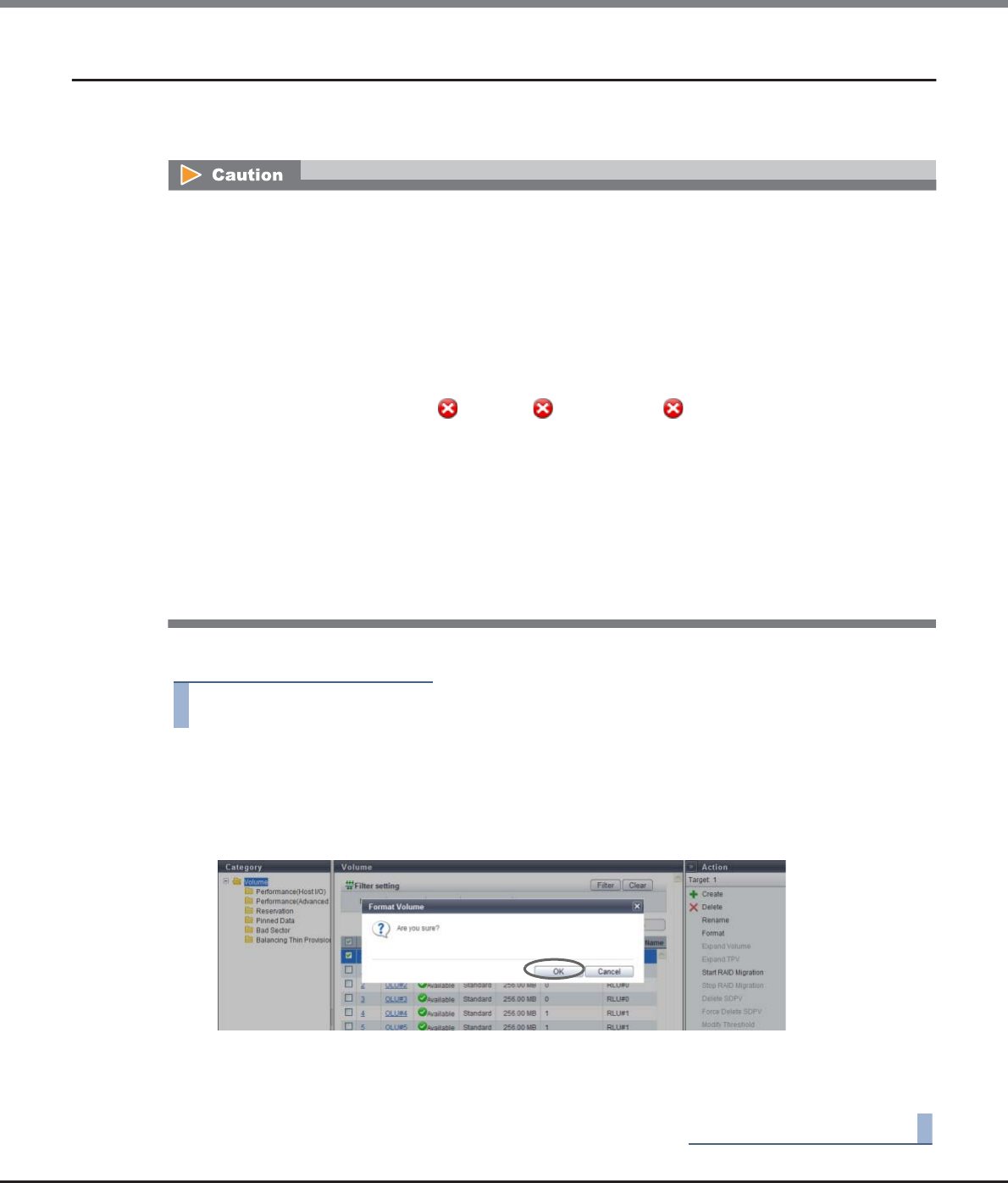
Chapter 5 Volume Management
5.2 Functions in the Action Area for Volume
ETERNUS Web GUI User’s Guide
Copyright 2013 FUJITSU LIMITED P2X0-1090-10ENZ0
116
5.2.4 Format Volume
This function formats the selected volume.
The data stored in the volume will be deleted by formatting.
The procedure to format a volume is as follows:
Procedure
1 Select the volume to be formatted (multiple selections can be made) and click [Format] in
[Action].
→ A confirmation screen appears.
2 Click the [OK] button.
→ Formatting of a volume starts.
3 Click the [Done] button to return to the [Volume] screen.
End of procedure
• Formatting newly created volumes is not required since these volumes are formatted automatically.
• This function formats "Standard", "WSV", "SDV", "SDPV", "TPV", and "FTV" type volumes.
• When formatting a TPV, the physical allocating area that is used by the target TPV is released.
• This function cannot be used under the following conditions:
- When a RAID group diagnosis is being performed in the ETERNUS DX Disk storage system
- When a disk diagnosis is being performed in the ETERNUS DX Disk storage system
- When pinned data exists in the ETERNUS DX Disk storage system
• The following volumes cannot be formatted:
- Volumes for which "Status" is " Broken", " Data Lost", or " Not Ready"
- Volumes undergoing RAID migration
- A copy source volume or a copy destination volume of an Advanced Copy (local/remote) that is being
performed
- Volumes registered in a RAID group undergoing Logical Device Expansion (LDE)
- An ODX Buffer volume for which Advanced Copy (ODX) is being performed in the ETERNUS DX Disk
storage system
• Do not format the volumes with Storage Migration paths.
• When using the ETERNUS DX8700 S2, up to 1024 volumes can be formatted at a single operation.


















